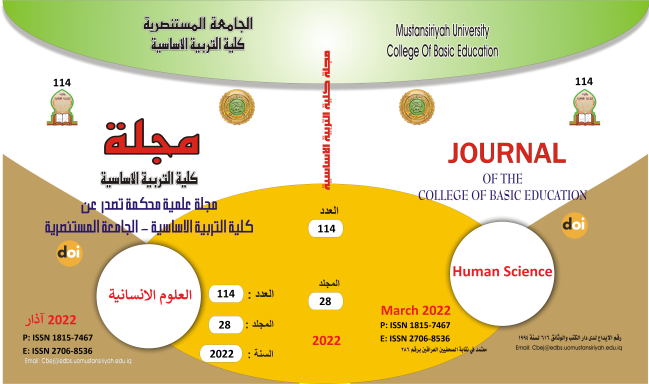Manifestations of Consistency Connectivity (Justification) in the Honorary Book of Royal Ethics and Islamic Countries by Muhammad bin Ali bin Tabataba (d. 709 AH)
Main Article Content
Abstract
Reasoning is one of the most important aspects of continuity consistency, which is related to the term cause, for cause and reasoning indicate one thing. Most of the linguistic meanings refer to illness and disease. And in the terminology: it is the confirmation of the influencer to prove the effect, or it is the manifestation of the cause of the thing, whether it is complete or incomplete. The method of reasoning is carried out with various and many special tools referred to by the grammarians, some of them are monolithic and some are binary, and others are linked with a special word to be a structure indicative of the explanation Its usefulness lies in informing the report and clarifying the reason for the listener. The focus of the research is on the tools of reasoning that contribute to the consistency of the texts of "Al-Fakhri" by Muhammad bin Ali bin Tabataba, as I found them abundantly in the texts of his book, including the monosyllabic: Kalalam, which is the most prominent of his tools, the Baa and Kaf, and the explanation in binary letters. : In, and in, and ki..etc. I also showed the reasoning through the nouns (the object for which), which is one of the inflections in Arabic, which comes to explain the reason and the reason for the occurrence of the verb, and thus it falls within the group of methods that benefit the explanation. He was more informed than he mentioned it without a defect, and this is what I saw in the consistency of the texts of Al-Fakhri.
Article Details

This work is licensed under a Creative Commons Attribution-ShareAlike 4.0 International License.
